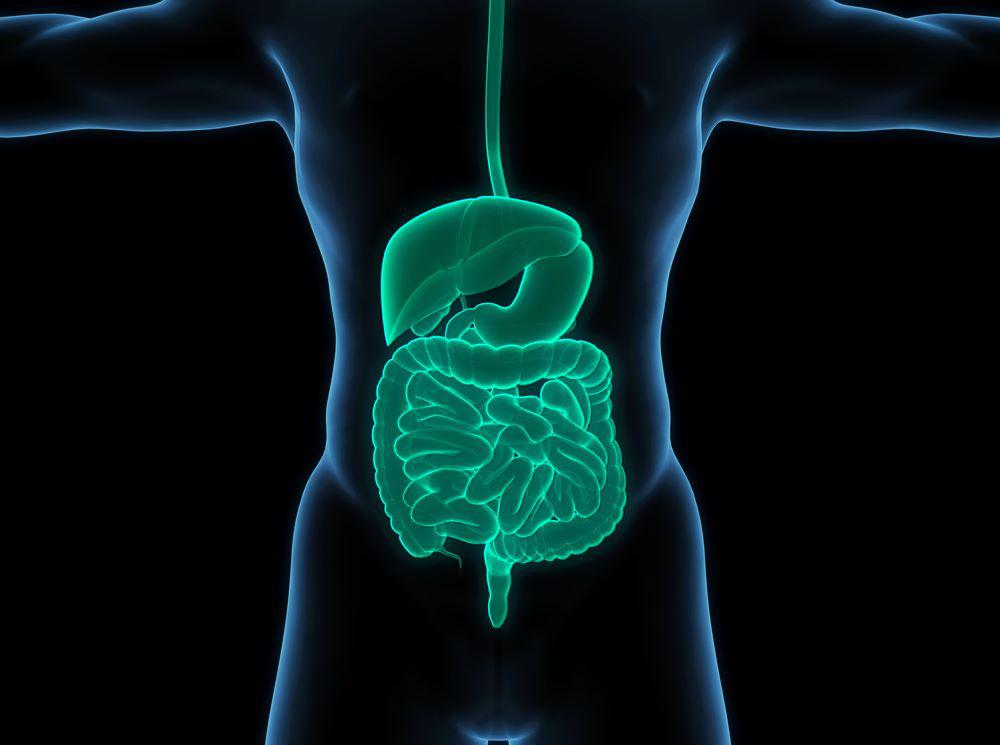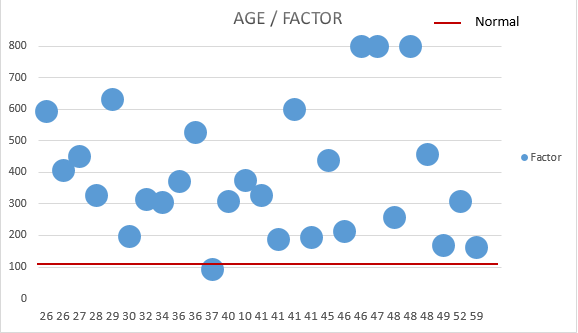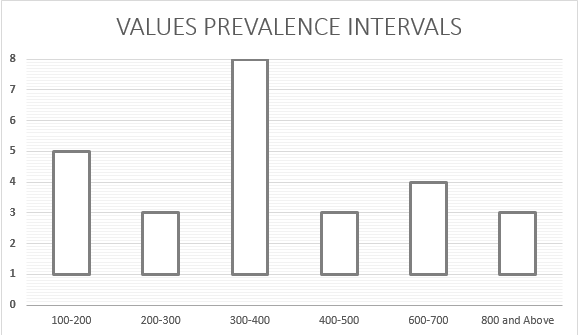Prevalence of leaky gut in Lebanon

What is a leaky Gut?
Leaky Gut Syndrome (LGS) is a proposed gastrointestinal disorders that affects the lining of the intestines.
Study on Lebanese population
After a wide study done on a group of 28 Lebanese patients, based on laboratory testing, results showed that 27 out of 28 came out positive and only 1 came out negative. Meaning that, 96% of them suffered from the Leaky Gut Syndrome and 4% did not.

Not only that, positive members had most of them, significantly high values over the range, which is critical and questionable as we can see in this Figure.1


High number of people had values between 300 and 400 which is relatively high
What a high number!!
Why is it so high? How can leaky gut occur? Let’s find below some important information reveling the reasons.
How?
Everyone’s guts are semi permeable. The mucous lining of our intestines is designed to absorb water and nutrients from our food into our bloodstream. But some people have increased intestinal permeability or hyper permeability. That means their guts let more than water and nutrients through they “leak”.
The concept of leaky gut has received increasing attention today due to its association with numerous gastrointestinal (GI) and Non Gastrointestinal disease such as IBS, Alzheimer, asthma, type 2 diabetes, hepatic steatosis and many others. To the point that dietary modifications, prebiotics and other interventions intended to increase gut integrity are recommended as treatment for the host of disease.
What are the major causes?
• Food Poisoning
• Certain bacteria are directly linked to the leak, such as cholera.
• Exposure to pesticides, toxins and polluted water
• Random intake of antibiotics.
• Poor gut health: An imbalance between good and bad bacteria in the gut (Dysbiosis)
• Eating foods rich in aflatoxins
• Excessive sugar consumption
• Nutrient deficiency
• Stress
• Inflammation
• Yeast overgrowth
• Excessive alcohol intake
• NSAIDs (Non steroid, etc.) intake
Signs and Symptoms
• Bloating
• Chronic Diarrhea or Constipation
• Inability to digest
• Fatigue, joint pain
• Skin rashes like Acne and Eczema
• Headache and lack of concentration
Lifestyle and prevalence
Factor affecting our food choices that can affect directly our guts health.
1. Food choices:
a. Toxins in plant foods:
i. Oxalates (cocoa, beets, sesame seeds, sweet potato, spinach),
ii. Histamines ( Yogurt, cheese, spinach, avocado, eggplant)
iii. Phyticacids ( kidney beans, peas, chickpeas, lentils, peanuts, oil seeds, nuts, grains)
iv. Lectins (beans grains, nightshade veggies, dairy products, legumes, grains)
v. Carbs ( bread, cereal, pasta, chips, crackers, etc)
b. Food that contains gluten
c. Foods high in sugar
d. Food high in Mycotoxins (Nuts, coffee beans, chocolates, dried fruits, beer, wine, etc)
e. Processed foods
2. Mental health
3. Medical conditions
4. In Lebanon we are known for the very high consumption of these products that’s why a convenient and safe lifestyle should be proposed for symptomatic and asymptomatic patients. Not only that, Lebanese people are known for being constantly under stress coming from all the problems they are facing. Last but not least medical conditions that can occur at any case (genetically or triggered) such as the IBS or celiac disease all of these are triggers for the leaky gut .This high prevalence of leaky gut in Lebanon is due to most of these factors, increasing so much nowadays. It has to be taken into consideration and controlled as soon as possible.
5. Diseases associated with Leaky Gut: Celiac Disease, Diabetes, Crohn’s Disease, IBS, Food allergies.
HOW TO IMPROVE YOUR GUT HEALTH
There are steps you can take to improve your gut health. One of the keys to a healthier gut is increasing the number of beneficial bacteria in it.
Here are a few strategies to support a healthy gut:
• Limit your refined carb intake: Harmful bacteria thrive on sugar, and excessive sugar intake can harm gut barrier function
• Take a probiotic supplement: Probiotics are beneficial bacteria that can improve your gut health. Probiotic supplements have been shown to be beneficial for gastrointestinal diseases
• Eat fermented foods: Fermented foods, such as plain yogurt, kimchi, sauerkraut, kefir and kombucha, contain probiotics that can improve gut health
• Eat plenty of high-fiber foods: Soluble fiber, which is found in fruits, vegetables and legumes, feed the beneficial bacteria in your gut
• Limit the use of NSAIDs: The long-term use of NSAIDs like ibuprofen contributes to leaky gut syndrome
HOW TO AVOID
• Increase your intake of high-fiber foods.
• Reduce your intake of refined carbohydrates
• Reduce your use of NSAIDs. Nonsteroidal anti-inflammatory drugs (NSAIDs), such as aspirin, ibuprofen, and naproxen.
• Take probiotic supplements.
• Reduce your stress levels.
• Reduce your alcohol intake.
• Quit smoking. Tobacco smoke may increase digestive tract inflammation.